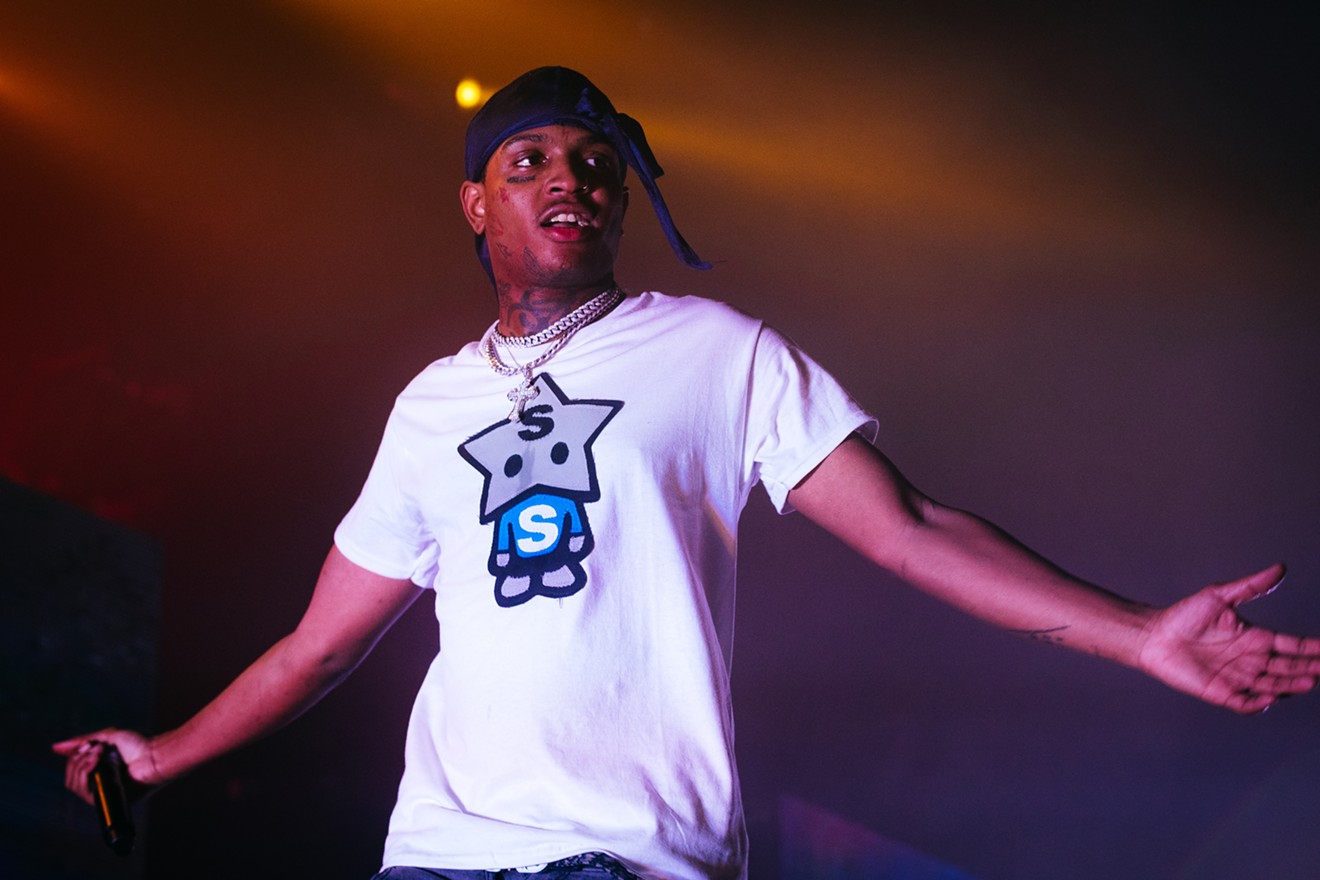In June, I had the pleasure of reviewing one of Juice WRLD’s two Bomb Factory sets, and I noticed something about him that was rare. He was popular enough to do a two-night stand at a 4,300-capacity venue, but at the same time, he was everyone’s little secret.
You may not have heard of the Chicago rapper, but if you have kids in grade school, they almost certainly have. I’m only 26, yet I was one of the oldest people in the room that night. People who looked to be a decade my junior knew all the words to songs like “Maze” and were moved by lyrics such as, “Like a crawlspace, it’s a dark place I roam.”
When I was growing up, this level of vulnerability was so absent from hip-hop circles that Kanye West’s 808s & Heartbreak was seen as a game-changer simply by virtue of its emotional catharsis. For some reason, masquerading through life with an emotionally durable façade and bravado has been expected of many artists in many subcultures. Rock music had that problem for decades, and even whenever emo achieved mainstream success in the ‘00s, participants of the subculture were mocked ruthlessly.
Artists like Drake were instrumental in dismantling those barriers in hip-hop, but I sincerely believe that Juice WRLD performed a crucial public service in helping tear down the stigma toward emotional expression and encouraging those coming of age to find strength in vulnerability. Thanks to emo rappers like him, teenagers are now freer than ever to express struggles with mental health, even in a world that hasn’t been exactly kind to such plights.
Juice WRLD died on Sunday after suffering a seizure. Emo rap’s resurgence only came in the latter half of this decade, yet the genre’s Mount Rushmore has already been carved in granite. Last year, one of Juice WRLD’s closest friends, XXXTentacion, got murdered. The year prior, another friend, Lil Peep, died from a fentanyl overdose. X died at 20, and Lil Peep at 21. Their lives were taken at such a young age, and in the song “Legends,” Juice WRLD acknowledged this with the poignant bar, “What’s the 27 Club? We ain’t making it past 21.” Tragically, these lyrics are prophetic, as Juice WRLD died just six days after his 21st birthday.
To that point, it’s a complete travesty that 27 is now considered a lofty goal for this generation’s artists. Juice WRLD should have lived a full life, but like thousands of other artists, he fell victim to substance abuse. It’s natural to want to decry the fact that his music glamorized drug abuse in the first place, but part of a musician’s job is to channel their reality into an auditory canvas. You don’t even have to listen to his music to deduce that drugs were part of his world — the name “Juice WRLD” is rather on-the-nose.It’s a complete travesty that 27 is now considered a lofty goal for this generation’s artists. Juice WRLD should have lived a full life, but like thousands of other artists, he fell victim to substance abuse.
tweet this
Drugs should never define a person’s entire existence, but this subject is pertinent given that seizures are a common side effect of benzodiazepine withdrawals and how that may tie in with his history of taking Xanax. Moreover, consideration is owed as to what compelled Juice WRLD to venture into substance abuse in the first place. On the track “Empty,” he opens up about taking pills to cope with emotional distress and how he “problem solve[s] with Styrofoam.”
We aren’t conditioned to perceive drug abuse among musicians as the attempted escape from a mental hell it often is. We tend to think of it as nothing more than a component of the “Sex, drugs and rock 'n’ roll” trinity, and as such, the subject conjures an image of Tommy Lee doing a speedball while having sex with groupies, or of Brian Wilson dropping acid and writing “Hang On To Your Ego.” Many of us have also been taught to demonize drug addicts and to support harsh punishments for them, and in a world where some people can’t even muster empathy for addicts who have nothing, asking them to show compassion for addicts who have everything is a challenging prospect.
Despite this, Juice WRLD opened up and gave his fans an outlet to commiserate and cope. He provided them comfort through difficulties, whether it be their parents’ divorce, the death of a loved one or their first serious breakup. He helped many young people navigate through the tumult and confusion that come with growing up. Most important, he gave listeners the confidence and emotional intelligence to make themselves vulnerable.
We tend to think of musicians as disposable accessories, but they perform one of the most important roles in society. They serve as cultural ambassadors; they engage in a form of communication that represents our values, encourages systemic change and lends expression to a wide spectrum of emotions that are earmarks of the human condition. Juice WRLD fulfilled these roles in giving young people refuge and helping signify a shift in emotional expression within popular music.
He was taken from us far too early, but at 21, Juice WRLD accomplished what even artists twice his age could only dream of, and his legacy is made strong in the multitudes of lives he has improved. It’s a shame that he was robbed of opportunities to expand his cultural imprint, but that’s arguably more of our loss than his.












